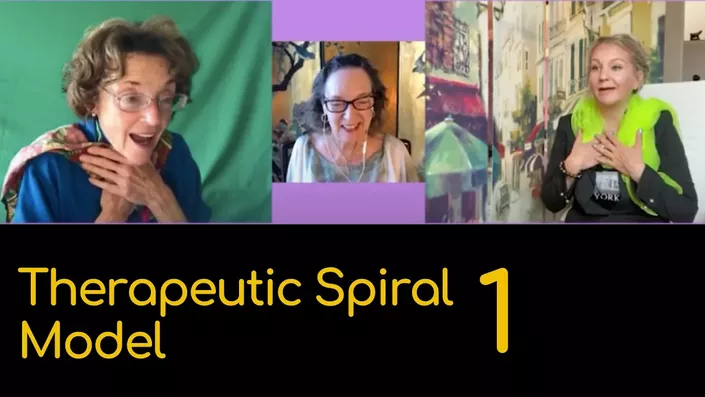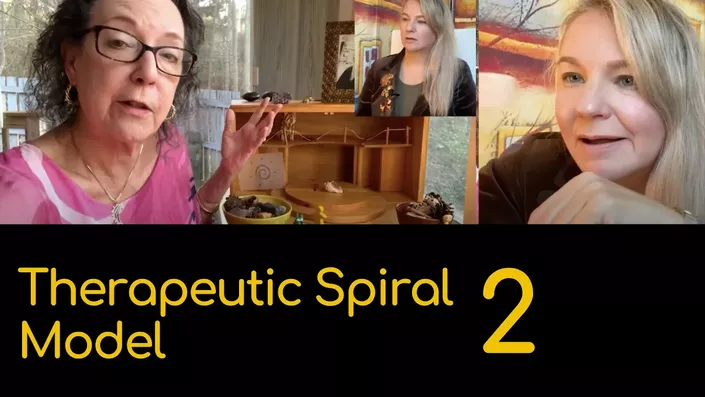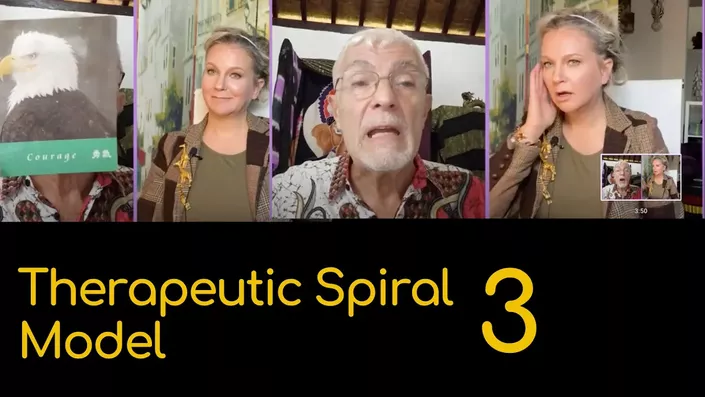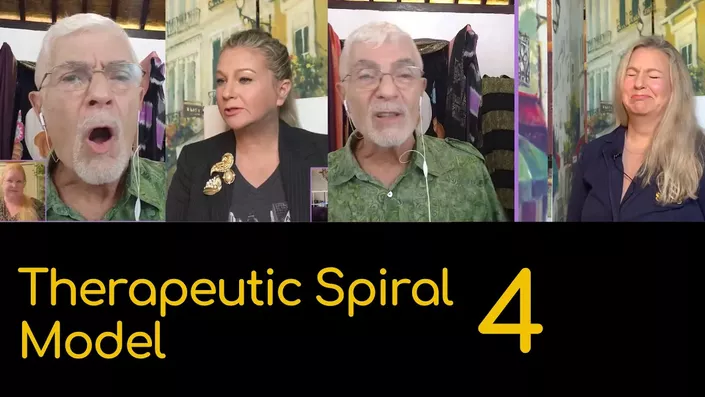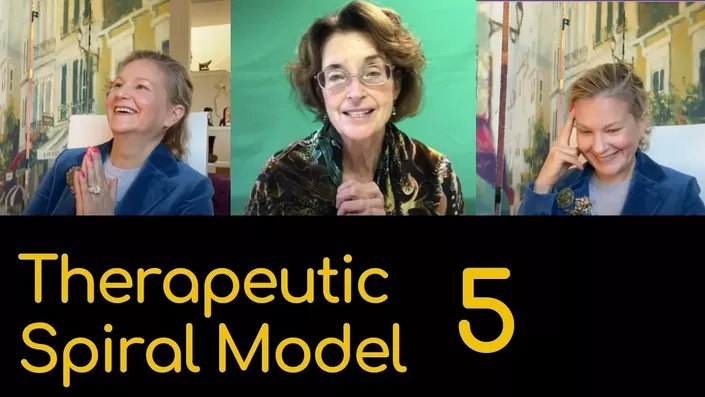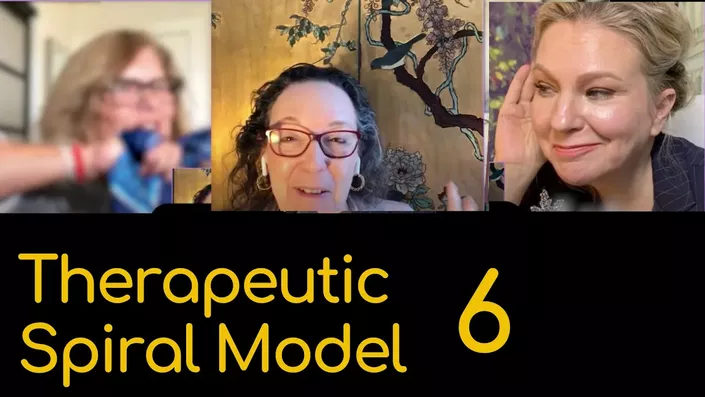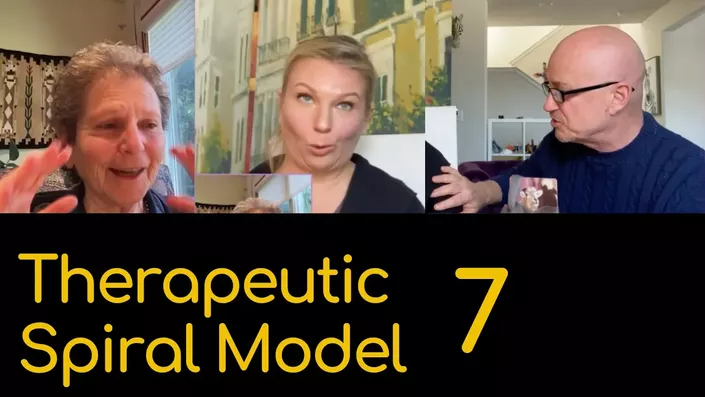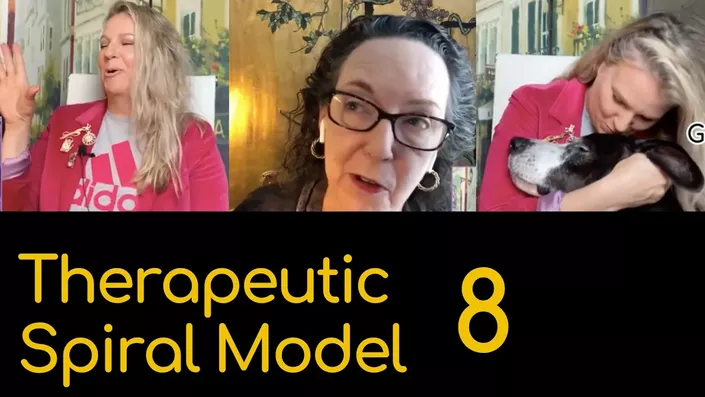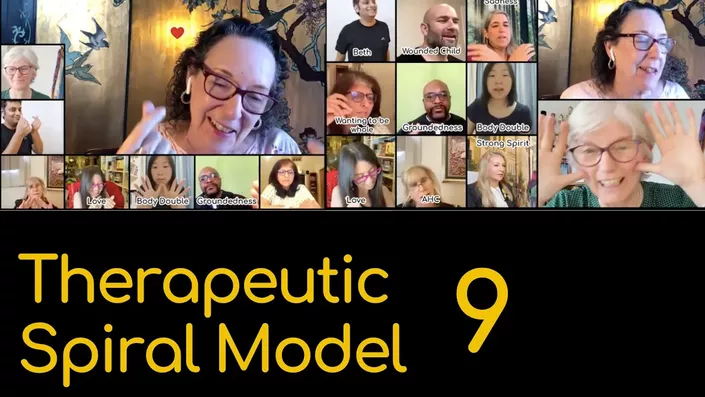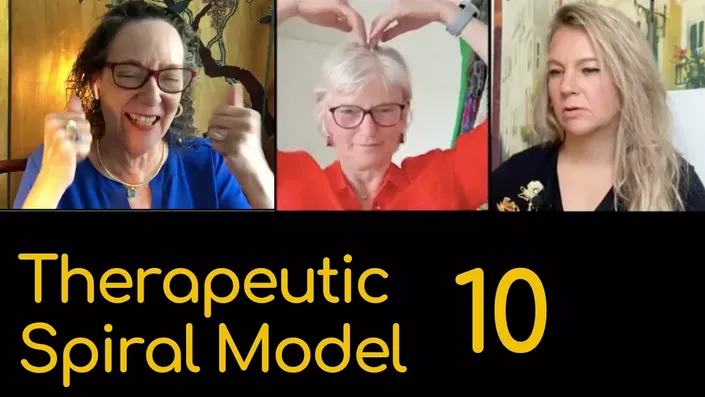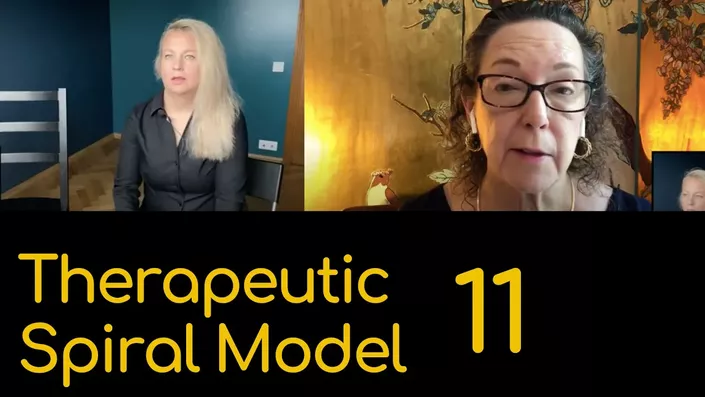
Course: Therapeutic Spiral Model (TSM) Psychodrama: Theory & Practice with Trauma. How TSM Works? Foundations and Expansions. 11 modules
Discover and master TSM with the experts Dr Kate Hudgins PhD/TEP (USA), Linda Ciotola M.Ed./TEP/CET III (USA), Mario Cossa RDT/MT/TEP (USA/Bali), Sylvia Israel LMFT/TEP/RDT/BCT (USA) and Ina Hogenboom TEP (Netherlands).
$450 (11 Module Course) - 180 days access
Countries of resedence are grouped into pricing Bands A–D, offering 30–70% discounts, applied to all modules and courses. Find your band here.
About the Course:
This video course introduces Innovative Clinical Psychodrama as an effective and safe method for treating trauma and PTSD. Recent research in the neurobiology of trauma and attachment underscores the efficacy of experiential, body-based approaches in psychotherapy and education. Clinicians working with trauma aim to establish a secure and contained therapeutic environment. Action therapy plays a pivotal role but can sometimes trigger unprocessed trauma material, leading to flashbacks and decompensation. TSM, developed by Board Certified Psychodrama Trainers, Educators, and Practitioners Kate Hudgins, Ph.D., and Francesca Toscani, M.Ed., TEP, serves as a guide for trauma treatment. TSM integrates classical psychodrama, attachment theory, and insights from interpersonal neurobiology and trauma theory, enhancing safety and structure when working with trauma.
This video course delves into TSM's historical foundations, highlighting the distinctions between classical and TSM psychodrama. It provides practical insights on applying the TSM clinical map, exploring the trauma triangle and establishing TSM prescriptive roles in both clinical and non-clinical settings. The course guides through directing a protagonist towards Post-Traumatic Growth using prescriptive, trauma-based, and transformative roles. It demonstrates innovative ways of doubling, establishing safety, and working with defenses. Witness how to direct individual and group sessions using the TSM model, leading protagonists to Post-Traumatic Growth. This course offers a unique opportunity to observe therapeutic sessions, showcasing the personal and professional growth of a diverse group of 14 international students, including psychotherapists, counselors, business owners, private practice owners, and business coaches.
This course is designed for:
• Therapists
• Social workers
• Psychologists
• Counselors
• Psychodramatists
• Educators
• Coaches
This Course is appropriate for those who are new to action methods, as well as experienced practitioners, students in mental health fields, and those who want to develop their skills in action methods. Acting skills are not necessary.
Learning Objectives:
• Define the similarities and differences of classical and TSM psychodrama
• Establish the role of Autonomous Healing Center (AHC)
• Analyze the clinical map, detailing the three stages of TSM work.
• Describe how prescriptive roles contribute to creating a therapeutic container, including an understanding of prescriptive, trauma-based, and transformative roles.
• Define the TSM trauma triangle, its components.
• Describe how to direct a protagonist to establish the Prescriptive Role of the Observing Ego and the restoration roles within the therapeutic context.
• Describe the six TSM Action Safety Structures, emphasizing their role in creating a secure therapeutic environment.
• Differentiate between classical and TSM doubling, highlighting key distinctions in their practical applications.
• Describe how to establish a clinical contract
• Distinguish Post Traumatic growth
• Explore the functions of the TSM Team Roles, including Director and Assistant Leader.
• Describe the historical development of Post Traumatic Growth (PTG) and recognize its significance within the Therapeutic Spiral Model (TSM)
How and where to use:
• Issues/concerns: trauma work, ptsd, cptsd
• In Clinical and non-clinical setting
• Individual and group setting
• Online and in-person (therapy, counseling, classes, group leading)
• Education and Coaching (wellness, business)
Presenters:
Dr. Kate Hudgins is PhD, TEP, an inspirational leader and a stellar trainer known worldwide for her innovative model of safe and effective trauma treatment. International expert and author on trauma, Kate brings rigorous clinical training in psychology, psychodrama, and experiential psychotherapy as well as cross-cultural and indigenous learning and her own life experience.
Linda Ciotola M.Ed., TEP, CET III, TSM Trainer, is co-author with Karen Carnabucci of Healing Eating Disorders with Psychodrama and other Action Methods - Beyond the Silence and the Fury, Jessica Kingsley, London, 2013; 2008 recipient of the Zerka Moreno Award and 2019 recipient with Nancy Alexander of the Collaborator's Award and Fellow of the ASGPP.
Mario Cossa RDT/MT, TEP, TSM Trainer – founder and Director of Motivational Arts Unlimited, and recipient of the ASGPP Innovator’s Award, 2019. Mario brings decades of experience as a group facilitator and psychodrama director and has worked in the USA, Canada, the UK, Australia, New Zealand, Malaysia, Indonesia, Korea, and China.
Sylvia Israel LMFT, TEP, RDT/BCT, Founder/Director of Imagine! Center for Creativity and Healing and Founder/past Director of the Bay Area Playback Theatre. In addition, Sylvia is Adjunct Faculty at the CIIS and Kansas State University and has taught at various universities including Sonoma State, Dominican, and John F. Kennedy. She is a Certified Trainer in the TSM for working with Trauma Survivors and is trained in Somatic Attachment Therapy and IMAGO couples counseling. Sylvia is past-President of NADT and a Fellow of the ASGPP.
Ina Hogenboom, Netherlands, TEP in Psychodrama, Trainer and Team-Leader in Therapeutic Spiral Model
Course Includes:
Main Content:
• Videos - 694 min
• Handouts - 1047 min
• Test - 30 x 11 min
• Course Survey - 5 x 11 min
Recommended Content:
• Healing Trauma with the Therapeutic Spiral Mode. Interview with Dr. Hudgins. Part 1
• Healing Trauma with the Therapeutic Spiral Mode. Interview with Dr. Hudgins. Part 2
• Healing Trauma with the Therapeutic Spiral Mode. Interview with Dr. Hudgins. Part 3
• Practicum - 460 Minutes
Hours for Certificate:
• 43 training hours on the Action Explorations Education Certificate. Our courses may be applied toward professional certification/training hours, depending on your board’s policies. Please verify eligibility with your certifying board or primary trainer. We’re happy to connect and answer questions about course content, hours, and documentation. Reach out anytime with your questions.
